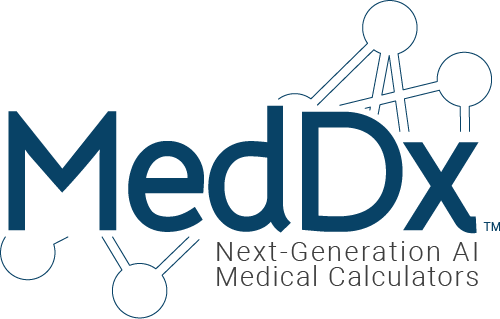In an era where technology and healthcare are becoming increasingly intertwined, the advent of machine learning (ML) in medical tools marks a revolutionary stride forward. Particularly, machine learning-based medical calculators have emerged as pivotal assets in the healthcare sector, offering a blend of innovative computation and clinical expertise. These calculators are more than just digital tools; they are intelligent systems designed to assist in diagnostic and therapeutic decision-making processes.
Their significance lies not only in their technological sophistication but also in their ability to transform vast amounts of clinical data into actionable, patient-specific insights. With the healthcare industry grappling with ever-increasing data complexity and the need for precision medicine, these calculators stand at the forefront of this transformative journey.
However, the true effectiveness of a machine learning medical calculator is determined by a myriad of factors. It’s not just about harnessing the power of AI and algorithms; it’s about creating a tool that is accurate, user-friendly, clinically relevant, transparent, compliant with healthcare standards, and capable of evolving with the landscape of medical knowledge and technology. But what elements make these calculators truly effective and reliable?
1. Precision and Reliability: The cornerstone of any medical tool is its accuracy. ML medical calculators must be built on robust, diverse datasets and validated rigorously to ensure their results are dependable across various clinical scenarios.
2. User-Friendly Interface: The best tools are those that are easy to use. A well-designed calculator should feature an intuitive interface, allowing healthcare professionals to input data swiftly and understand outputs clearly, streamlining their workflow.
3. Clinical Relevance and Utility: To be truly impactful, these calculators must align closely with the practical needs of clinicians. Incorporating relevant clinical variables and providing actionable insights are key.
4. Transparency in Algorithmic Functioning: Understanding the ‘how’ and ‘why’ behind the calculator’s outputs fosters trust. Clinicians need to comprehend the logic and reasoning the tool uses to arrive at its conclusions.
5. Adherence to Regulatory Standards: Compliance with healthcare regulations and data security is paramount. These calculators must safeguard patient privacy and meet the legal standards of healthcare operations.
6. Ongoing Evolution: The field of ML is dynamic; thus, these calculators should continually evolve, integrating new data, user feedback, and advancements in ML methodologies.
Machine learning medical calculators represent a significant leap forward in healthcare technology. Balancing accuracy, user experience, clinical relevance, algorithmic transparency, regulatory compliance, and continuous improvement is essential. As we move forward, these tools will become increasingly vital in supporting healthcare professionals in delivering optimal patient care.

